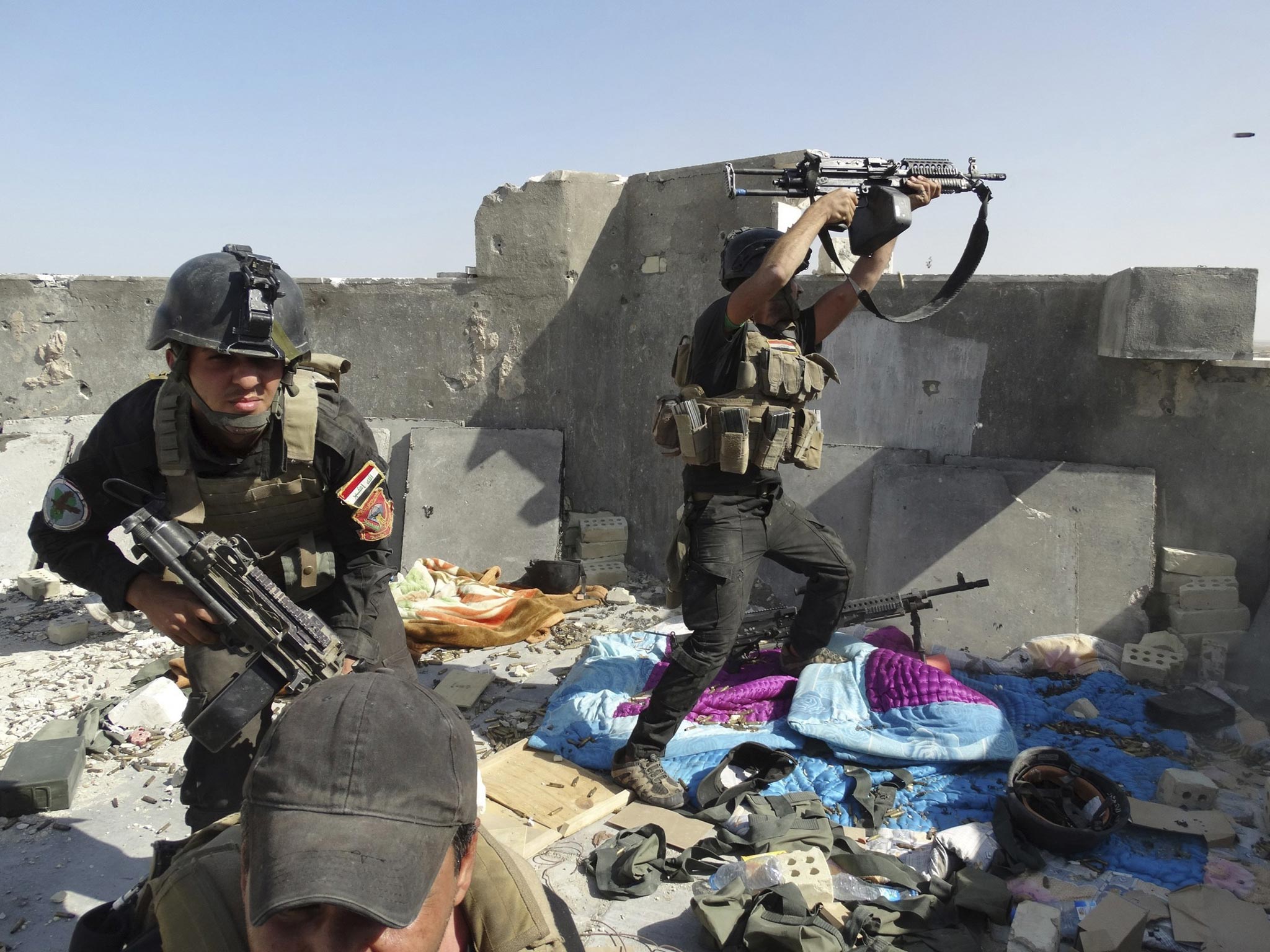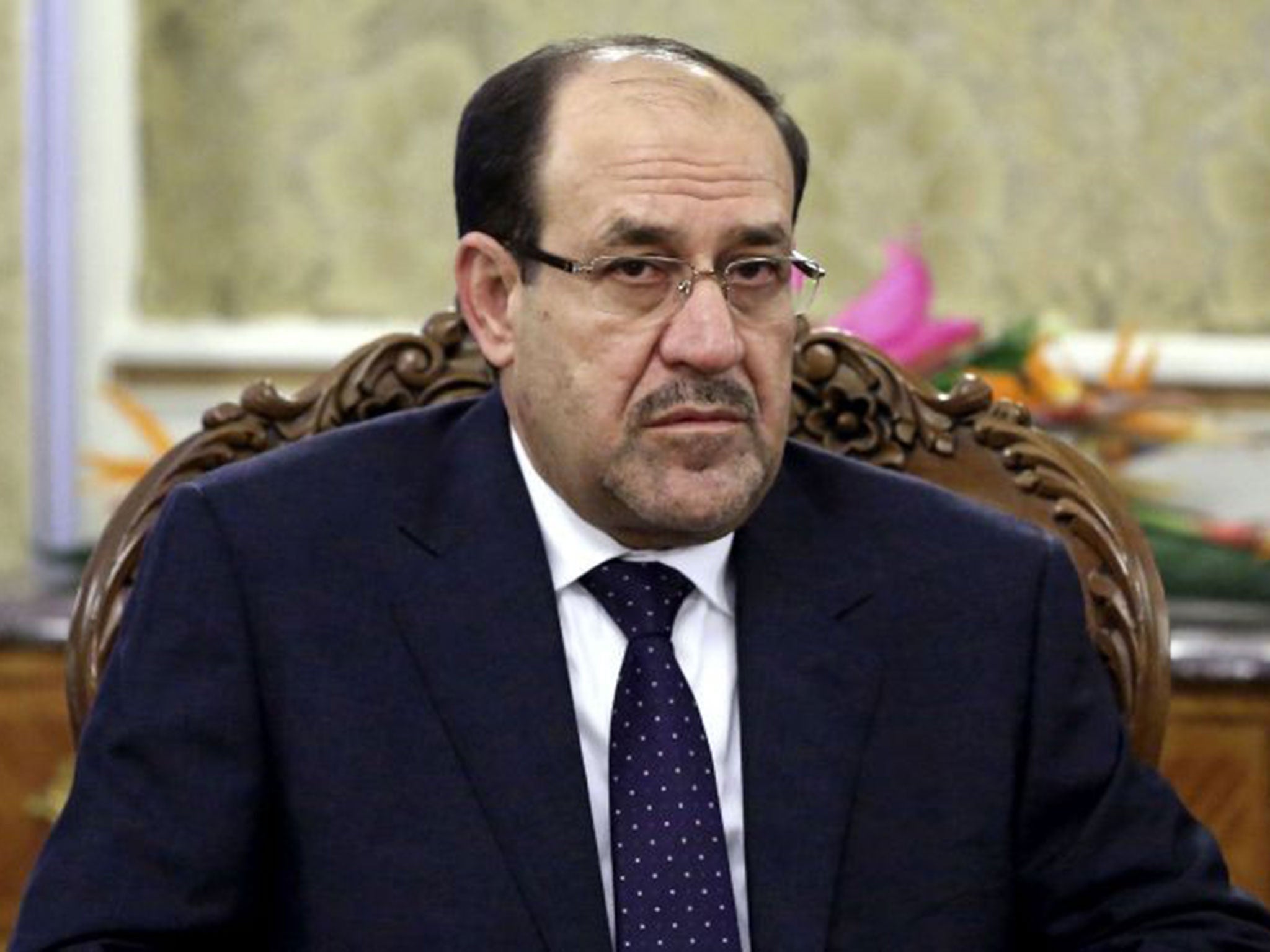Iraq crisis: Iran's Khamenei condemns US intervention and 'attempts to turn conflict into sectarian war'
As Isis militants make territorial gains, Iran's overall leader says he 'strongly opposes' US military action in the region

Your support helps us to tell the story
From reproductive rights to climate change to Big Tech, The Independent is on the ground when the story is developing. Whether it's investigating the financials of Elon Musk's pro-Trump PAC or producing our latest documentary, 'The A Word', which shines a light on the American women fighting for reproductive rights, we know how important it is to parse out the facts from the messaging.
At such a critical moment in US history, we need reporters on the ground. Your donation allows us to keep sending journalists to speak to both sides of the story.
The Independent is trusted by Americans across the entire political spectrum. And unlike many other quality news outlets, we choose not to lock Americans out of our reporting and analysis with paywalls. We believe quality journalism should be available to everyone, paid for by those who can afford it.
Your support makes all the difference.Despite the ongoing threat of Iraq descending into civil war and repeated warnings that the conflict could spread across the Middle East and beyond, Iran's spiritual leader has said he strongly opposes the idea of US intervention.
Ayatollah Ali Khamenei today insisted that the crisis is not a sectarian one, warning instead that the US is seeking to use the opportunity to seek an Iraq “under its hegemony and ruled by its stooges”.
Swathes of northern Iraq have been seized by fighters for the Islamic State of Iraq and the Levant (Isis), which made further gains today, but Khamenei said he was against the US getting involved, with or without Iran's cooperation.
“We strongly oppose the intervention of the U.S. and others in the domestic affairs of Iraq,” Khamenei was quoted as saying by the official IRNA news agency.
Khamenei, who has the final say over government policies, added: “The main dispute in Iraq is between those who want Iraq to join the US camp and those who seek an independent Iraq. The US aims to bring its own blind followers to power since the U.S. is not happy about the current government in Iraq.”
Khamenei said Iraq's government and its people, with help of top clerics, would be able to end the “sedition” there, saying extremists are hostile to both Shiites and Sunnis who seek an independent Iraq.
Another senior figure, former President Akbar Hashemi Rafsanjani, said Tehran did not want to meddle in other nations but also hoped to mediate to “extinguish the fire” in Iraq.
The comments come after Isis fighters seized another town in Iraq's western Anbar province, the fourth to fall in two days.
The militants captured Rutba, about 90 miles (150 kilometers) east of the Jordanian border, late Saturday, officials said.
Residents were on Sunday negotiating with the militants to leave after an army unit on the town's outskirts threatened to start shelling.
The towns of Qaim, Rawah, Anah and Rutba are the first seized in the mainly Sunni Anbar province since fighters from Isis and their allies overran the city of Fallujah and parts of the provincial capital of Ramadi earlier this year.

Chief military spokesman, Lt. Gen. Qassim al-Moussawi, acknowledged the fall of the Anbar towns, saying government forces had made a tactical retreat and planned to retake them.
Isis and allied militants have carved out a large fiefdom along the Iraqi-Syrian border, in response to which the US President Barack Obama has ordered three warships be deployed o the Persian Gulf and a team of up to 300 military personnel be readied to protect American assets in Baghdad.
The government of Prime Minister Nuri al-Maliki has asked for US air strikes in order to assert the Iraqi armed forces' aerial superiority - a request which Obama is still considering.
Last week it seemed as though the growing threat of Isis could have haled the end of 35 years of hostility between the West and Iran.

When asked about the possibility of Iranian, Iraqi and American forces working together to help contain the crisis, the US Secretary of State John Kerry said: “I wouldn’t rule out anything that would be constructive.”
But Khamenei's comments appear to shut the door on any such historic rapprochement.
Meanwhile, Iraqi military officials said this afternoon that Isis had captured a further two international border crossings, one with Jordan and another with Syria, as government forces there retreated from fighting.
Speaking today on CBS's “Face the Nation”, Obama said that Washington would remain “vigilant” in the face of a force that could grow in power to destabilise the region.
But he warned that the US would not “play whack-a-mole and send US troops occupying various countries wherever these organizations pop up”.
Join our commenting forum
Join thought-provoking conversations, follow other Independent readers and see their replies
Comments